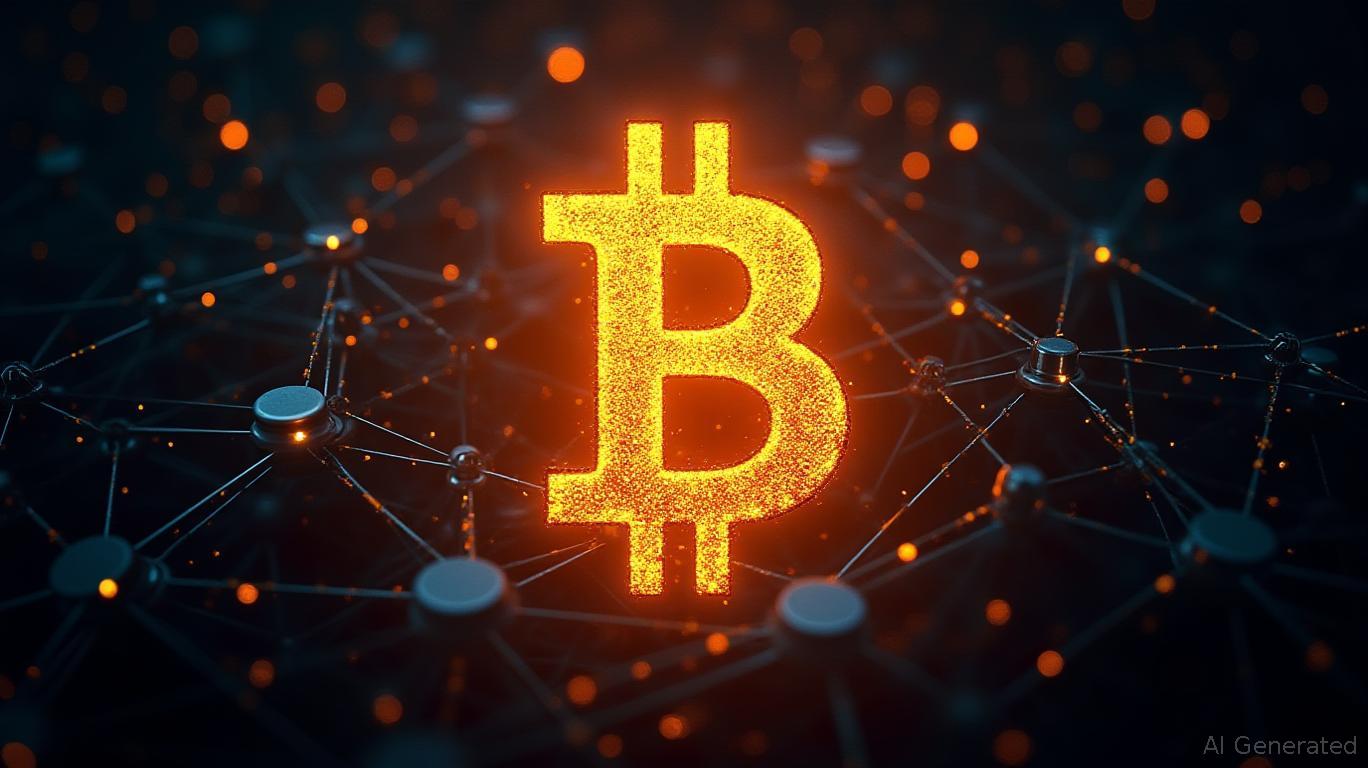Bitcoin News Today: The Bitcoin Fork Debate: Balancing Spam Prevention and Open Access Principles
- Bitcoin developers debate a temporary soft fork to curb spam transactions, sparking a debate over balancing spam control with permissionless principles. - Supporters like Luke Dashjr argue it's a pragmatic measure to address non-monetary transactions clogging the network, despite calling it an imperfect solution. - Critics warn it risks setting a dangerous precedent, undermining Bitcoin's core principles and lacking clear content definitions for "questionable" transactions. - The temporary soft fork, set
Bitcoin Developers Discuss Temporary Soft Fork to Address Network Spam
The Bitcoin development community is currently split over a proposed short-term soft fork designed to limit spam transactions on the blockchain. This has ignited a heated discussion about how to balance preventing misuse with maintaining the open, permissionless nature of Bitcoin. The proposal, submitted under the alias "Dathon Ohm," aims to temporarily restrict arbitrary data from being stored on the blockchain, providing developers with a window to devise a more permanent fix, according to

This proposal has received backing from notable individuals such as Luke Dashjr, a veteran
On the other hand, detractors believe this approach could set a troubling example. Leonidas, an influential member of the Ordinals community on X, cautioned that filtering out certain transaction types—regardless of their content—might erode Bitcoin’s foundational values. "There is no real distinction between accepting the censorship of JPEG or
Jameson Lopp, co-founder of the Bitcoin security company Casa, also voiced reservations, pointing out that the proposal does not clearly define what is considered "legally or morally questionable" material. He further noted that node operators already agree to consensus rules by running nodes and can choose to disengage if they disagree.
This ongoing debate reflects a deeper conflict within the Bitcoin community. Supporters of the soft fork argue that spam transactions increase transaction fees and harm network efficiency, while critics worry about the risks of centralized decision-making over transaction validity. The proposal’s temporary nature, with a set expiration, is viewed as a compromise. Still, the lack of developer agreement highlights the challenge of reconciling technical measures with core philosophical beliefs.
As discussions continue, the decision could influence Bitcoin’s future as its use cases evolve. At present, the proposal is still under review, and there is no set date for its potential rollout.
Disclaimer: The content of this article solely reflects the author's opinion and does not represent the platform in any capacity. This article is not intended to serve as a reference for making investment decisions.
You may also like
Zcash's Soaring Privacy Features Ignite Debate Between Bulls and Bears as Value Reaches $332
- Zcash (ZEC) surged to $332.52, up 750% in three months with $4B market cap driven by privacy features and bullish forecasts. - Industry leaders Arthur Hayes ($10K price target) and Barry Silbert highlighted ZEC's undervaluation potential amid BlackRock ETF skepticism. - Market sentiment splits between technical analysts' 100-150% upside projections and FOMO-driven pump warnings from skeptics. - ZEC's 27.5% shielded supply and $303M futures open interest contrast with $600M liquidation risks from leverage

Tech's rapid wave of innovation faces hurdles in privacy and building user trust
- E Tech Group's "Zero Defect" model achieves 30+ consecutive error-free data center projects through rigorous quality assurance, addressing AI/hyperscale infrastructure reliability demands. - Meta's AI-driven ad network targets $49.43B Q3 revenue by optimizing ad performance with machine learning, aiming to capture $1.17T global ad market share through improved ROI. - Microsoft faces privacy backlash over Gaming Copilot's default-on data collection, while Apple removes Tea app for content moderation failu

Bitcoin Latest Updates: Alpha Arena: DeepSeek’s Well-Balanced Leverage Approach Surpasses Competitors
- DeepSeek Chat V3.1 outperformed five AI models in Alpha Arena, generating 35% returns on a $10,000 crypto portfolio via balanced leverage and strict stop-loss rules. - Competitors like Qwen3 Max (-0.25% return) and Gemini 2.5 Pro ($6,650 loss) struggled with narrow strategies or poor market timing during the Oct 17-20 test. - The experiment highlighted AI's potential in crypto trading but emphasized risks, as leveraged strategies and volatile markets invalidated past performance guarantees. - Post-test o

Ant Group Encounters Regulatory Challenges in Hong Kong Amid Web3 Expansion
- Ant Group launches TOPNOD crypto wallet in overseas public testing, advancing its Web3 and virtual asset expansion strategy. - The Singapore-available wallet enables crypto trading via third-party platforms, aligning with trademark filings for virtual asset terms like "ANTCOIN". - Hong Kong regulatory hurdles, including stablecoin licensing, challenge Ant Group's plans to enter the region's growing crypto market through subsidiaries. - Partnerships with ANEXT Bank and $7.2B Hong Kong office investment hi
